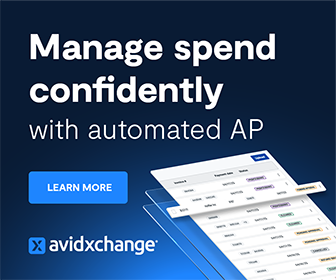According to Grand View Research, the U.S. data monetization market will experience an average compound annual growth rate of 23.1% through 2030. This trend demonstrates that data is no longer just an IT concern. With the right strategy, it’s a corporate asset with tangible monetary value.
For controllers and CFOs, the ability to monetize data is transforming finance from a support function to a revenue driver. By leading data initiatives, you can unlock new business models and sharpen your organization’s competitive edge.
Monetizing a company’s data also creates revenue to fuel other modernization efforts, such as adopting AI or restructuring finance. Here’s how you can turn data into revenue.
Data as a Revenue Stream
Every finance leader understands the value of data for analytics. Collecting and analyzing large volumes of information can provide timely, relevant insights that guide decision-making and help your organization capitalize on potentially fleeting opportunities.
However, modern businesses are exploring ways to use the vast amounts of data they generate to drive direct revenue. Using your company’s information as a revenue generator is a viable model that can positively impact the bottom line and help you fund critical projects.
Step one involves identifying datasets with market value. Consumer behavior analytics is a prime example. Retailers need to know how consumers in different markets behave, and they will pay good money to find out.
Does your business operate on the back end of the supply chain? Your data is still valuable. Manufacturers or mid-link businesses may use your data to glean insights into supply, demand, and overall reliability. For example, a logistics firm might sell aggregated delivery data to improve supply chain operations.
The key is to be realistic about the potential of your company’s data. Is it going to replace your primary revenue stream? No. Can it help you build a discretionary spending fund, put together cash to weather slow periods in the market, or pay for modernization projects? Absolutely!
That’s the beauty of data monetization. You are generating revenue simply by tapping into an asset that you already have.
Driving the New Business Model
Data monetization can be a catalyst for expanding your business model. Let’s say your organization collects predictive maintenance data. You could lead an initiative to develop data-driven products, such as predictive maintenance services based on equipment performance data.
To create an effective model, you’ll need to collaborate with other departments. Specifically, you should expect to team up with marketing, sales, and IT.
When you’ve formed a data monetization task force, discuss the most viable solutions based on your market visibility, reach, and industry. Brainstorm at least two or three models that monetize your data and hammer out the details until you have a working plan.
Elevating Data Governance
Today’s businesses face greater data governance challenges than ever, largely due to the sheer volume of information they collect. Regulations like the GDPR in Europe and a slew of copycat frameworks in the United States are making governance more important than ever.
If your organization intends to monetize data, especially customer data, it needs to conduct a comprehensive audit. Examine your current governance policies and solutions to ensure they can support data monetization while protecting consumer privacy.
State and federal governments are coming down harshly against any business that violates these new privacy frameworks, so do your due diligence.
Data security is another concern. Monetizing data means accessing and sharing it more frequently. Make sure that you have sufficient encryption capabilities and monitoring tools to keep information out of the wrong hands.
Challenges in Data Monetization
Monetizing data isn’t without challenges. Data silos, privacy concerns, and lack of expertise can hinder progress. Overcome these barriers by partnering with IT and legal teams to address data integrity and compliance concerns. Additionally, investing in new analytics tools will help you unify disparate datasets.
Changing privacy laws are another concern. You’ll need a nimble compliance infrastructure that can adapt to multi-jurisdictional legal frameworks, especially if your organization operates internationally.
Delivering Key Leadership to Push the Project Forward
As a controller, your financial acumen positions you to lead data monetization efforts. Approach this project with a similar mindset to what you would use for other initiatives.
Dive deep into the data and focus on proving the potential of data monetization to the C-suite. Anticipate and answer questions like “What’s the ROI?” and “What’s the time to value?”
You already have the skills and the data assets necessary to achieve monetization. Now, it’s time to put it all together as you create a new revenue stream for your organization.
Use your expertise to evaluate the costs and benefits of data projects and ensure they align with corporate goals. Treating data like the strategic asset that it is will drive innovation and profitability across the business.




